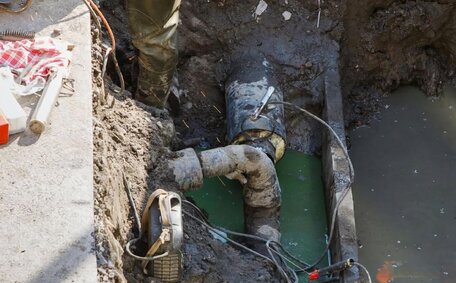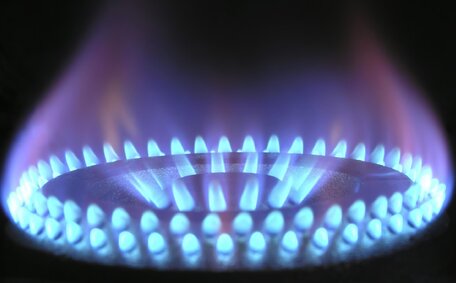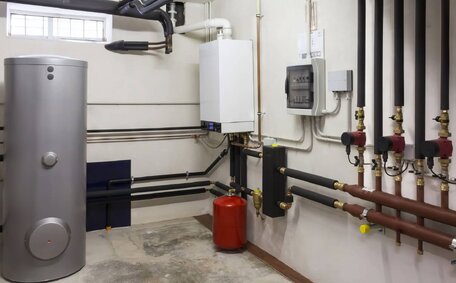
Sump Pump Failure Solutions
Sump pumps fail due to power outages, clogs, frozen pipes, and more. Prevent water damage by understanding causes and contacting plumbers for solutions to extend pump life.
Read MoreRegular servicing of your hot water heater is crucial for efficiency, longevity, avoiding breakdowns, and ensuring safety. Hot water heating accounts for approximately 21% of home energy usage, so Properly maintaining continuous flow systems also reduces energy costs.
Routine inspections, adjustments and maintenance tasks will extend your hot water unit’s lifespan. This includes checking for leaks, managing water temperatures and pressure, testing relief valves, replacing anode rods, flushing sediment, and insulating pipes and tanks for peak performance, some of which can be DIY tasks. Some basic maintenance can be undertaken by homeowners, but professional servicing is recommended every 1-2 years.
This guide explains how regular maintenance benefits your heat pump water heater, outlines service requirements and highlights signs indicating the need for attention. Proactive maintenance enhances the life your hot water system, promoting longevity, efficiency and safety, avoiding costly repairs down the track.
Homeowners can conduct monthly inspections to check for leaks, corrosion, and damage, catching problems early. This involves visual checks of pipes, joints, valves and the storage tank. Also monitor for changes in water flow, temperature or pressure, which can indicate issues.
Key areas to inspect for proper function to heat water in your tank are:
It’s important to check valves, such as the TPR and isolation valves, for proper functioning. Test your pressure relief TPR valve, also known as the temperature pressure relief valve, manually every six months.
Regular anode replacement is critical to prevent corrosion inside the tank. Anodes should be replaced when they’re 60-70% eroded, which can be determined by annual checks.
While you can typically handle anode replacement, valve testing and minor leak repairs, it’s best to leave more complex repairs or parts replacement to professionals.
Best practice involves a comprehensive service by a licensed plumber every 1-2 years for checks and maintenance that go beyond DIY capabilities. Consult our Licenced Plumbers at Cronulla Plumbing for professional servicing to keep your hot water system running efficiently.
It is very important to regularly check your water systems and related piping for leaks to catch issues early. Even minor leaks should be promptly addressed to prevent water damage or electric shock risks.
Conduct visual inspections around these areas:
Check for signs like dampness, mineral deposits, rust stains or mould around your water tank. Running your hand along pipes can detect moisture from small leaks, a typical household plumbing issue. Position a container underneath to catch drips for verification.
Watch for unexpected rises in utility bills, as they may suggest issues with your hot water system. Catching problems early with maintenance tips to help prevent issues with your gas hot water system is more cost effective, preventing extensive damage requiring major repairs down the track.
If your hot water system shows any signs of leak, corrosion or other issues, turn off the water supply immediately. Then call your team at Cronulla Plumbing on 1300 349 338 to schedule prompt repairs.
A TPR valve is a safety feature on water heaters that releases excess pressure to prevent damage or explosions. Routine testing of TPR valves is crucial to ensure they activate when necessary.
Follow this process to safely test relief valves of various water systems:
The temperature pressure relief valve is vital for releasing dangerous pressure buildup in hot water systems. Ensure valves are maintained, tested routinely and replaced when expired for optimal protection.
Sacrificial anode rods are metal rods installed inside tank to actively prevent corrosion. Made from aluminium or magnesium, they attract corrosion to themselves instead of allowing the tank to corrode.
Checking and ensuring anode rods are replaced every few years inside the tank is essential maintenance. Inspect annually and replace when eroded 60-70% to maximise the tank’s lifespan. Replacement is typically needed every 4-5 years.
Replacing anodes every four to five years, a crucial task for tank health, typically involves:
For safety, this process is best left to qualified professionals. Consult our expert Cronulla Plumbing team to handle anode replacement.
Maintaining the sacrificial anode preserves hot water tank integrity, avoiding leaks and expensive repairs. Anodes require routine replacement to keep hot water systems running efficiently for years.
Sediment buildup in your tank system can impact performance and efficiency, so it’s essential to keep your water heater clean. Annually flushing the tank helps remove this sediment to keep it running optimally.
Flushing involves:
Annual flushing, based on your system’s needs and manufacturer recommendations, optimises efficiency by preventing mineral sediment buildup. If tank flushing advice is needed, consult our experts at Cronulla Plumbing.
Setting the water temperature on hot water tanks correctly optimises efficiency and prevents potential bacteria growth.
Storage tanks should be set to at least 60°C to kill Legionella bacteria. Temperatures without adequate temperature relief put households at risk. At the same time, ensure it remains below 75°C to avoid scalding.
Your solar hot water system or tankless water heaters can be set lower around 50°C since cold water isn’t stored, making them an efficient alternative. This uses less energy while still providing comfort and safety. New units often have digital displays showing temperature.
Make sure you adjust the thermostat and check with a thermometer that the desired temperature range has been reached. Consider timers or solar pre-heating to further maximise efficiency.
Getting temperature right saves money through improved efficiency while protecting from harmful bacteria for safety. Consult Cronulla Plumbing if your hot water system requires adjustment guidance.
Insulating hot water pipes and tanks effectively improves efficiency and conserves energy. Hot water pipes in cooler environments lose heat, which can also lead to energy loss from your tank.
Insulating pipes and tanks creates a temperature barrier to retain heat longer. Benefits of insulation include:
Insulating water heaters and the first metre or so of piping conserves approximately 185kWh yearly and saves over $150 on your energy bills.
Properly insulating all pipework, bends, and joints ensures consistent hot water availability. Use premium insulation products, such as polyethylene foam tubing or rubber foam sleeves, designed for plumbing applications. Consult our team at Cronulla Plumbing if you need advice selecting suitable hot water insulation products.
It’s recommended to engage qualified plumbers for thorough hot water system maintenance beyond annual servicing. Our Cronulla Plumbing team comprises licensed experts who offer:
With routine professional maintenance tips followed and having your system serviced every 2 years as recommended, the longevity, efficiency and safety of your hot water system is ensured. Contact our friendly team at Cronulla Plumbing on 1300 349 338 to book your maintenance service.
Maintaining your hot water heaters poses certain safety risks that should be noted. Take care when draining tanks or testing valves, as water exceeding 50°C can cause scalds. Switch off power and water supply before accessing electrical or gas components to prevent electric shock or gas leaks.
It is advisable to call our professional team at Cronulla Plumbing immediately if you experience:
Our licenced technicians can promptly and safely inspect faults and undertake necessary repairs. We have extensive experience managing hazardous plumbing issues while ensuring full compliance with Australian Standards.
For your own safety and for timely and proper issue diagnosis regarding your gas water heater, contact Cronulla Plumbing on 1300 349 338 whenever significant hot water system problems arise.
Regular maintenance of electric hot water heaters is essential for efficiency, longevity, and safety. Homeowners should conduct routine monthly checks to identify leaks or damage early. Replacing sacrificial anodes, testing valves, insulating tanks/pipes and adjusting thermostats can also optimise performance.
However, comprehensive servicing by qualified professionals to service every valve which might need attention every 1-2 years is highly recommended. Our expert team at Cronulla Plumbing offer a full maintenance package inspecting all critical components and servicing to Australian Standards.
For licensed servicing or repairs, call us on 1300 349 338 or email jobs@cronullaplumbingservice.com.au to book an appointment. Proactive maintenance enhances efficiency, prevents issues and gives peace of mind that your hot water system is running reliably for years.
Sump pumps fail due to power outages, clogs, frozen pipes, and more. Prevent water damage by understanding causes and contacting plumbers for solutions to extend pump life.
Read MoreIf your monthly gas bill rises suddenly for no clear reason, the cause could be a gas leak from old pipes or appliances. Contact your provider to investigate.
Read MoreScale buildup reduces the efficiency of hot water systems over time. Regular descaling helps remove this. Flush your system with vinegar or a descaling solution.
Read MoreCronulla, 2230 NSW
We will call back as soon as possible.




